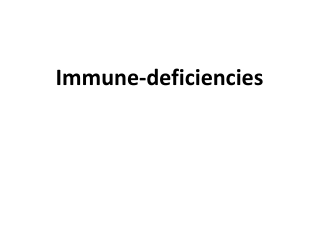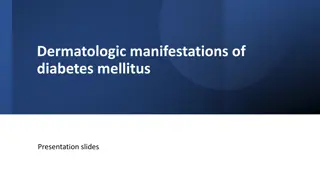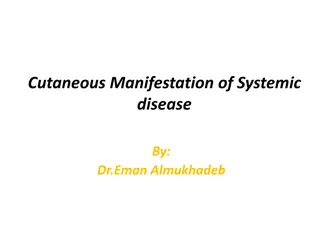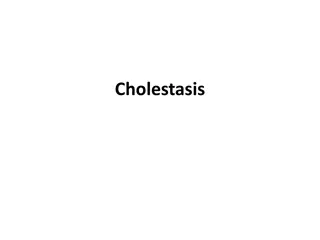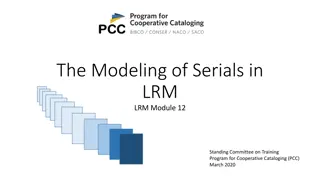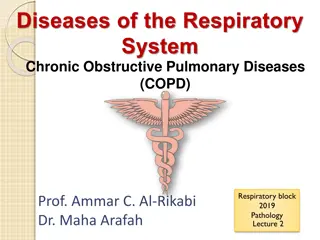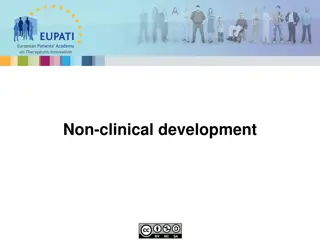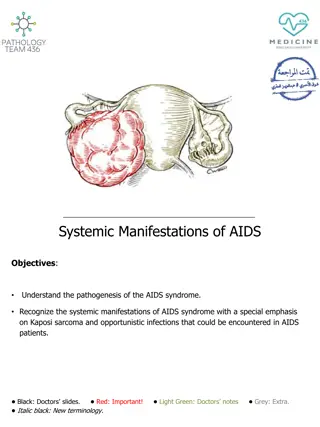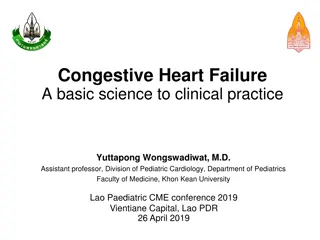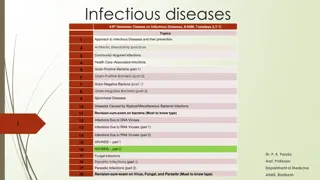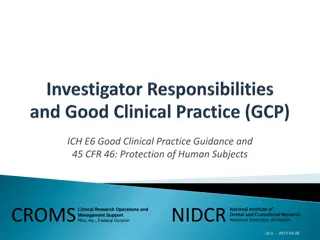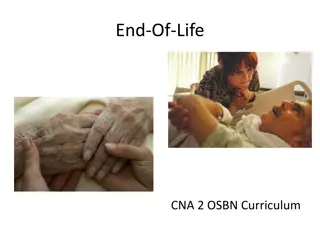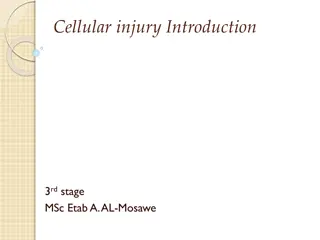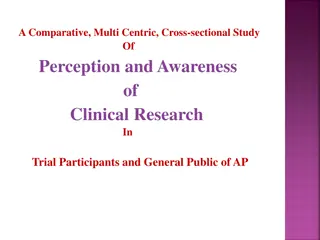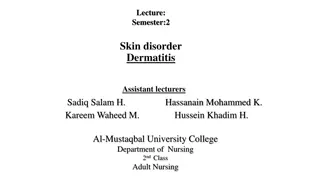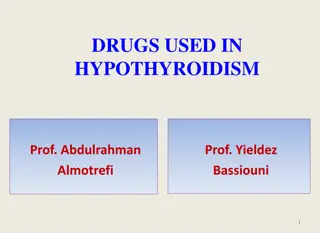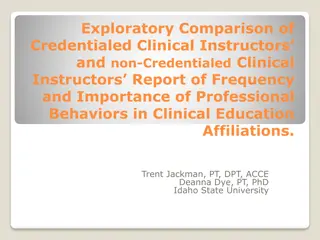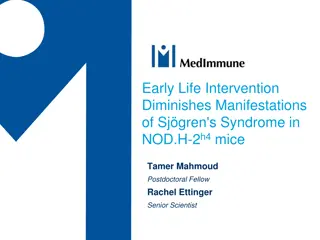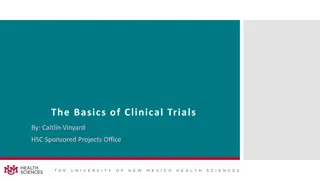Immune-deficiencies
Immune deficiencies can be classified into primary hereditary disorders based on clinical presentations, including cell-mediated, antibody-mediated, non-specific, and complement activation deficiencies. Major clinical manifestations of immune disorders range from B-cell deficiencies to phagocytic ce
2 views • 46 slides
Dermatologic manifestations of diabetes mellitus.
The presentation slides discuss various dermatologic manifestations of diabetes mellitus, including acanthosis nigricans, diabetic dermopathy, acrochordons (skin tags), and necrobiosis lipoidica diabeticorum (NLD). Each feature description, location, mechanism, and treatment options are detailed alo
8 views • 10 slides
Cutaneous Manifestations of Systemic Diseases: Endocrine Disorders and Diabetes Mellitus
Explore the cutaneous manifestations of systemic diseases, particularly focusing on endocrine disorders like diabetes mellitus. Learn about the dermatologic signs associated with conditions such as hypothyroidism, hyperthyroidism, Addison's disease, and Cushing syndrome. Discover specific manifestat
0 views • 88 slides
India Alliance Clinical & Public Health fellowship in India
India Alliance Clinical & Public Health fellowship in India\n\nIndia Alliance Clinical and Public Health Research Fellowships are for Health researchers with an MD, MS, MPH, or an equivalent clinical or public health degree, who can apply for the DBT\/Wellcome Trust India Alliance Clinical and Publi
0 views • 5 slides
Understanding Cholestasis: Etiology, Clinical Manifestations, and Complications
Cholestasis is characterized by reduced bile flow and elevated direct bilirubin. It is critical to differentiate it from neonatal jaundice. In conditions like biliary atresia and 1-antitrypsin deficiency, early diagnosis and intervention are crucial to prevent liver failure. Clinical manifestations
5 views • 14 slides
Ethical Issues in Clinical Pharmacy Research by Dr. Haider Raheem Mohammad
Research ethics play a crucial role in clinical trials and therapeutic research in the field of pharmacy. From discovery to validation, all medicines undergo rigorous evaluation processes to ensure safety, efficacy, and freedom from adverse effects. Clinical trials in both animals and humans are ess
0 views • 20 slides
Advanced Clinical Practice Framework and Pillars of Practice
The document discusses the advanced clinical practice framework and the four pillars of practice which include leadership & management, clinical practice, education, and research. It emphasizes the importance of core capabilities and area-specific competence in advanced clinical practice. The role o
2 views • 8 slides
Objective Structured Clinical Examination (OSCE): A Modern Approach to Assessing Clinical Competence
The Objective Structured Clinical Examination (OSCE) is a modern examination method widely used in the field of health science to evaluate clinical skill performance. It involves stations where medical students interact with simulated patients to demonstrate competencies such as history taking, phys
1 views • 40 slides
NIMH Clinical Research Education and Monitoring Program Overview
NIMH's Clinical Monitoring and Clinical Research Education, Support, and Training Program (CREST) aims to ensure the proper conduct, recording, and reporting of clinical trials. This program includes clinical monitoring plans, guidelines for site monitoring activities, and independent clinical monit
1 views • 29 slides
Modeling of Serials in IFLA LRM Module 12 by PCC
Serials in library cataloging are modeled as complex constructs in IFLA LRM with considerations for whole/part and aggregation relationships. This module explores the intricacies of serial manifestations, issue manifestations, and the concept of WEM lock, providing insights into collocating closely-
0 views • 15 slides
Understanding Chronic Obstructive Pulmonary Diseases (COPD) and Emphysema
Chronic Obstructive Pulmonary Diseases (COPD) encompass conditions like chronic bronchitis and emphysema, typically caused by factors like cigarette smoking. This presentation delves into the clinical and functional variances between chronic bronchitis and emphysema in COPD patients, along with an e
1 views • 40 slides
Understanding Non-Clinical Development in Therapeutic Innovation
The European Patients Academy on Therapeutic Innovation focuses on the non-clinical development phase of medicine, delving into efficacy assessment, safety evaluation, and manufacturing process considerations. Non-clinical studies are essential for decision-making in clinical trials, marketing appli
1 views • 26 slides
Understanding Rickettsia: Pathogenesis, Clinical Manifestations, and Diagnosis
Rickettsia, a genus of Gram-negative bacteria transmitted by arthropods, is responsible for diseases like Rocky Mountain spotted fever. It causes symptoms such as high fever, rash, and severe headache. Laboratory diagnosis involves serology and isolation from experimental animals. Learn more about R
1 views • 9 slides
Understanding Thyroid Hormones: Biosynthesis, Functions, and Clinical Implications
This educational material delves into the types and biosynthesis of thyroid hormones, the physiological actions of thyroid hormones, regulation levels, thyroid function tests, goiter, and the distinction between hypo- and hyperthyroidism. It covers the role of thyroid hormones in thermogenesis, meta
0 views • 33 slides
Understanding Systemic Manifestations of AIDS
Human Immunodeficiency Virus (HIV) is a retrovirus causing Acquired Immunodeficiency Syndrome (AIDS). HIV leads to immune system destruction, making individuals vulnerable to opportunistic infections and tumors. Common sexually transmitted diseases like syphilis, chlamydia, and gonorrhea are discuss
6 views • 15 slides
Understanding Congestive Heart Failure: From Pathophysiology to Clinical Practice
Congestive heart failure (CHF) is a condition characterized by systemic and pulmonary congestion due to the heart's inability to pump sufficient blood for the body's metabolism. It is closely linked to age and involves pathophysiology related to preload, afterload, contractility, and heart rate. Man
0 views • 20 slides
Overview of Cutaneous Tuberculosis: Causes, Classification, and Clinical Features
Cutaneous tuberculosis is caused by Mycobacterium tuberculosis and its manifestations depend on the host's immunity, route of entry, and bacterial load. It is classified into exogeneous and endogenous sources, with various types such as tuberculides and tuberculous chancre. Clinical features include
0 views • 31 slides
Understanding Evidence-Based Medicine and Clinical Decision-Making
European Patients Academy on Therapeutic Innovation emphasizes the importance of Evidence-Based Medicine (EBM) in providing optimum clinical care. EBM involves systematic review and utilization of clinical research for informed decision-making, benefiting patients in disease management and treatment
7 views • 20 slides
Understanding Alcohol Dependence: Causes, Effects, and Treatment
Alcohol Dependence Syndrome is a serious issue affecting individuals and society. This overview covers the definition, properties, epidemiology, causes, stages, and clinical features of alcoholism. It discusses the different types of drinkers, the process of alcoholism, and the clinical manifestatio
0 views • 25 slides
Understanding Thyroid Hormones and Thermogenesis in Endocrinology
This lecture covers the types, biosynthesis, actions, regulation, and clinical implications of thyroid hormones. It explains the functions of thyroxine (T4) and tri-iodothyronine (T3), their synthesis in the thyroid gland, and their transport in the body. The role of thyroid hormones in thermogenesi
2 views • 30 slides
Approach to Infectious Diseases: Antibiotic Stewardship, Bacterial Infections, and HIV/AIDS Clinical Staging
In the 4th-5th semester classes on infectious diseases, topics such as antibiotic stewardship, community-acquired infections, and various bacterial diseases are covered. The clinical manifestations and WHO clinical staging of HIV/AIDS for adults and adolescents are also discussed in detail. The cour
0 views • 29 slides
Essential Aspects of the Clinical Interview in Psychology
Clinical interviews play a crucial role in the assessment conducted by clinical psychologists, showcasing essential qualities like validity, reliability, and clinical utility. Understanding the importance of feedback and honing general and specific skills as an interviewer are key components in cond
1 views • 17 slides
Oral Manifestations of Systemic Diseases in Dentistry
This content explores various systemic diseases and their oral manifestations relevant to dentistry. It covers associations between heart disease and periodontal disease, effects of chronic corticosteroid use on the pulmonary system, endocrine disorders like diabetes and thyroid issues, autoimmune d
1 views • 63 slides
Clinical Research Guidelines and Regulations Overview
Clinical research encompasses various guidelines and regulations to ensure the protection of human subjects and the credibility of study results. Key aspects include Good Clinical Practice (GCP) standards, Title 45 of the Code of Federal Regulations (CFR) Part 46, and additional CFR sections for cli
0 views • 46 slides
End-of-Life Care: Understanding Physical Manifestations and System Responses
End-of-life care focuses on addressing the physical and psychosocial needs of individuals and their families during the dying process. It aims to provide comfort, supportive care, and improve the quality of life in the remaining days. Death occurs when vital organs cease to function, and specific ph
0 views • 15 slides
Understanding Cellular Injury and Its Manifestations
Cellular injury can occur due to various factors like physical trauma, chemicals, radiation, and biologic agents. This process can lead to reversible or irreversible damage in cells, affecting their normal functions and possibly leading to cell death. Manifestations of cellular injury include cellul
0 views • 9 slides
Understanding Cutaneous Manifestations of HIV and AIDS
Human Immunodeficiency Virus (HIV) is a lentivirus that infects CD4 T lymphocytes, leading to Acquired Immunodeficiency Syndrome (AIDS). Cutaneous manifestations of HIV/AIDS vary depending on the stage of infection and CD4 T cell counts. Early signs include exanthem, oral hairy leukoplakia, candidia
0 views • 17 slides
Skin Manifestations of Connective Tissue Diseases - Lecture Highlights
This lecture series discusses the various skin manifestations of connective tissue diseases, focusing on Lupus Erythematosus and other related conditions. It covers different types of Lupus, its effects on the body systems, treatment options, and psychosocial impacts. Additionally, the presentation
0 views • 76 slides
Ohio Clinical Alliance: Transforming Clinical Experiences
The Ohio Clinical Alliance, through collaborative partnerships, aims to enhance clinical preparation for educators. The leadership team comprises various representatives and organizations committed to improving student learning. Their activities include retreats and meetings to ensure effective comm
0 views • 27 slides
Understanding Upper and Lower Motor Neuron Lesions: Effects and Manifestations
This content delves into the intricacies of upper and lower motor neuron lesions, detailing their effects and manifestations in the human body. It explores the causes, types of paralysis, reflexes, muscle tone changes, and the impact of lesions at various levels of the motor system. The insights pro
0 views • 45 slides
Understanding Zoonotic Hepatitis A Virus Infections
Zoonotic hepatitis A virus infections primarily affect humans and nonhuman primates, with transmission occurring through fecal-oral route. This article delves into the reservoir, mode of transmission, clinical signs, and diagnosis of hepatitis A, shedding light on its impact on both species. Nonhuma
0 views • 22 slides
Clinical Manifestations and Complications of Neisseria Gonorrhoeae Infection
Neisseria gonorrhoeae, also known as gonococcus, is a bacterial pathogen responsible for gonorrhea. The virulence factors of N. gonorrhoeae include pili/fimbriae for adhesion, outer membrane proteins like Porin for protection, opacity-associated protein for adhesion to neutrophils, and more. Clinica
0 views • 15 slides
Perception and Awareness of Clinical Research in Trial Participants and the Public of Andhra Pradesh
This study focuses on understanding the perception and awareness of clinical research among trial participants and the general public in Andhra Pradesh. It highlights the importance of creating awareness about clinical research, previous study results, public attitudes towards clinical trials, and e
0 views • 24 slides
Understanding Dermatitis: Causes, Types, and Clinical Manifestations
Dermatitis is a common skin disorder characterized by inflammation, itching, redness, and skin lesions. This article explores the etiology, types (such as contact dermatitis and atopic dermatitis), and clinical manifestations of dermatitis, including acute and chronic phases. Learn about the risk fa
0 views • 17 slides
Drugs Used in Hypothyroidism and Their Effects
Hypothyroidism is characterized by an underactive thyroid gland, leading to a variety of symptoms. This detailed presentation covers the causes, manifestations, and treatments of hypothyroidism, with a focus on the drugs used for treatment. Learn about different classes of medications, their mechani
0 views • 20 slides
Exploring the Divine Creations and Manifestations
Delve into the intricate details of creation and manifestations according to ancient texts, understanding the diverse inhabitants and landscapes across the universe. Learn about the purposeful organization of different beings in various environments, guided by the profound laws of nature and the int
0 views • 55 slides
Comparison of Professional Behaviors in Clinical Education
Professional behavior characteristics play a crucial role in enhancing student learning during clinical education. This study examines the differences in reported importance and frequency of professional behaviors between credentialed and non-credentialed clinical instructors. The background outline
0 views • 28 slides
Early Life Intervention Diminishes Sjögren's Syndrome Manifestations in Mice
Early life intervention has been shown to reduce the clinical manifestations of Sjögren's syndrome in NOD.H-2h4 mice, which mimic key features of the human autoimmune disease. The syndrome is characterized by salivary gland autoantibodies, ectopic lymphoid follicles, reduced salivary and tear flow,
0 views • 19 slides
Enhancing Clinical Academic Collaboration Between Universities and NHS Trusts
Clinical academics play a crucial role in integrating clinical practice, research, and education within the NHS. Collaboration between universities and NHS trusts is key to ensure clinical academics address the right questions for patient care and societal benefit. Challenges include an aging clinic
0 views • 29 slides
Understanding Clinical Trials: Phases, Types, and Definitions
Clinical trials play a crucial role in advancing medical research and treatment options. This comprehensive guide covers the basics of clinical trials, including their definition, phases, types, and key definitions like IND, IDE, NDA, and more. Discover how different phases of trials work, the vario
0 views • 16 slides
